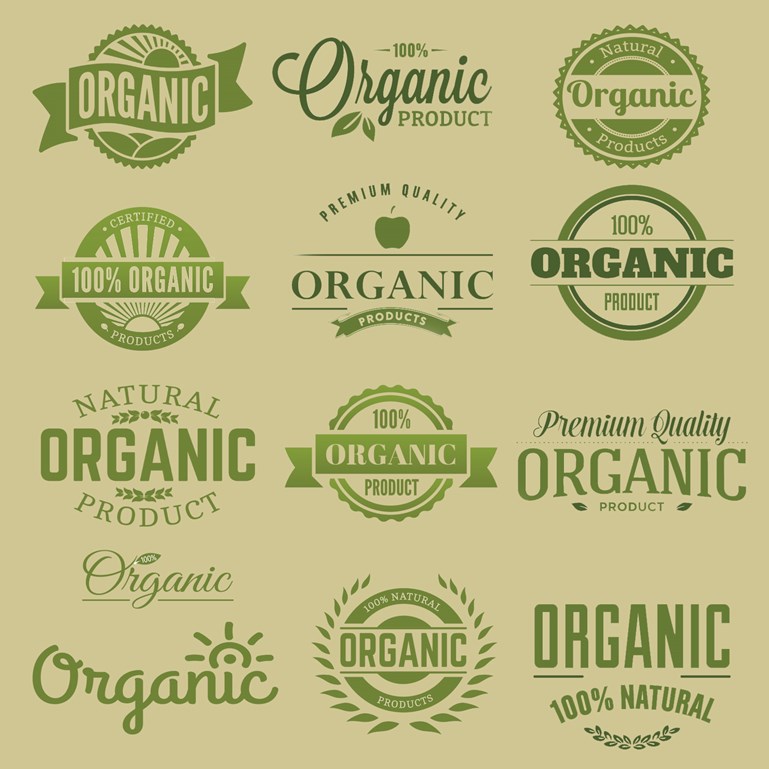
What Does Organic Really Mean in Cosmetics and Body Care?
There is a lot of confusion in the natural world over the terms “organic” and “natural.”
Organic does not always mean natural, and natural does not always mean organic. And there is a lot of concern over companies that label their products natural and/or organic, when in reality they are not either.
On the other hand, a product can be termed natural and have no organic ingredients whatsoever. So in the end, one really needs to be an ingredient detective.
Natural, in this sense, refers to how the ingredients in a product are derived. Many ingredients in body care labels are completely synthetic - with a few of them actually being natural (the few you can read and understand!) In fact, if you cannot pronounce the words on the label, chances are that the ingredient is not natural (although this is not always true, some plants and flowers are pretty hard to pronounce!).
Some natural ingredients are derived from natural sources, and then chemically altered or enhanced to get to their end state, but are still considered natural. Other ingredients are in fact 100% natural (essential oils, for example.) It just depends on how “natural” you want your ingredients to be and how far advanced in your natural journey that you are – most people are fine with mostly naturally derived ingredients in personal and body care, as after all, they don’t eat it.
Are Ingredients in Body Care Absorbed by Our Skin?
Speaking of eating, many wonder if the body care products that we slather on our skin are absorbed into our bodies. Many experts agree that up to 70% of the ingredients in body care can be absorbed by the skin, directly into the blood stream, but at this time there is no actual proof of this. We think it’s better to err on the safe side, since we have a choice in what we put on our skin. We don’t have to use harmful or toxic ingredients, and the truth is, companies do not need to put synthetic ingredients in their products for any reason other than to save on the bottom line.
So Does the FDA have a definition for the term “organic”?
No. FDA regulates cosmetics under the authority of the Federal Food, Drug, and Cosmetic Act (FD&C Act) and the Fair Packaging and Labeling Act (FPLA). The term “organic” is not defined in either of these laws or the regulations that FDA enforces under their authority.
How is the term “organic” regulated?
The Agricultural Marketing Service of the U.S. Department of Agriculture (USDA) oversees the National Organic Program (NOP). The NOP regulations include a definition of “organic” and provide for certification that agricultural ingredients have been produced under conditions that would meet the definition. They also include labeling standards based on the percentage of organic ingredients in a product. For more information on "organic" labeling for cosmetics, see the NOP publication, "Cosmetics, Body Care Products, and Personal Care Products."
If a cosmetic is labeled “organic” according to the USDA, is it still subject to the laws and regulations enforced by FDA?
Yes. The USDA requirements for the use of the term “organic” are separate from the laws and regulations that FDA enforces for cosmetics. Cosmetic products labeled with organic claims must comply with both USDA regulations for the organic claim and FDA regulations for labeling and safety requirements for cosmetics. Information on FDA’s regulation of cosmetics is available on our Cosmetics website.
The labeling guidelines presented by the USDA (organic products are bound to these standards only if they carry the USDA Organic Seal) are as follows:
- "100% Organic"- The product must contain (excluding water and salt) only organically produced ingredients. Products may display the USDA Organic Seal and must display the certifying agent's name and address.
- "Organic"-The product must contain at least 95% organically produced ingredients (excluding water and salt). The remaining product ingredients must consist of nonagricultural substances approved on the National List of non-organically produced agricultural products that are not commercially available in organic form. Products may display the USDA Organic Seal and must display the certifying agent's name and address.
- "Made with organic ingredients"-The product must contain at least 70% organic ingredients and the label can list up to three of the organic ingredients or "food" groups on the principal display panel. For example, body lotion made with at least 70% organic ingredients (excluding water and salt) and only organic herbs may be labeled either "body lotion made with organic lavender, rosemary, and chamomile," or "body lotion made with organic herbs." These products are not permitted to display the USDA Organic Seal, but they must display the certifying agent's name and address.
Keep in mind that sometimes it is impossible to create a 95% organic product simply because some ingredients do not exist as organic.
Fortunately, we all have a choice and can purchase whatever products we want to (for the time being anyway), so be sure that you are making smart choices for you and your family. This doesn’t necessarily mean that all products that you buy must be 100% organic and 100% natural, but the closer you can get (within your budget) will probably be better for you in the long run.


